This article was co-authored by wikiHow Staff. Our trained team of editors and researchers validate articles for accuracy and comprehensiveness. wikiHow's Content Management Team carefully monitors the work from our editorial staff to ensure that each article is backed by trusted research and meets our high quality standards.
There are 10 references cited in this article, which can be found at the bottom of the page.
This article has been viewed 25,791 times.
Learn more...
A Japanese passport is a great asset to have if you travel regularly. In 2018, the Japanese passport was ranked the strongest in the world, allowing holders to freely travel to 190 countries without the need for a visa.[1] However, if you're not a Japanese citizen, getting a passport can be difficult. First you have to go through the long process of obtaining Japanese citizenship. After you successfully become a Japanese citizen, getting a passport is simply a matter of submitting the correct application paperwork.
Steps
Meeting the Citizenship Requirements
-
1Live in Japan for at least 5 years. The minimum time for living in Japan before becoming a naturalized citizen is 5 years. During this time, you'll have to become a permanent resident, get a job, establish your residency, and learn Japanese. Also you must be at least 20 years old to become a naturalized Japanese citizen. Use this time to familiarize yourself with the process of Japanese naturalization so you're prepared when the time comes.
- If you're from the US or most European countries, you can travel to Japan for a short-term stay without applying for a visa first. For a full list of nationalities that don't require a visa to enter Japan, visit https://www.mofa.go.jp/j_info/visit/visa/short/novisa.html.
- For the process of getting Permanent Resident status in Japan, visit http://www.immi-moj.go.jp/english/tetuduki/index.html#sec_02.
- Remember that until you have a long-term residency card, you must carry your national passport with you at all times and present it if a Japanese officer requests you to.
-
2Find a job in Japan. To qualify for citizenship, foreign nationals must establish financial stability in Japan first. You must earn the minimum salary required to ensure you aren't a burden on Japanese social services. This includes being able to support your family as well.
- If you don't work but are married, your spouse can establish financial stability for both of you.
- The necessary wage for financial stability depends on where you live. In cities, a high cost of living means that you have to earn about 1,500 yen per hour to establish a comfortable life.[2]
Advertisement -
3Follow the law and the Japanese constitution. One of the requirements for naturalization in Japan is being in "good moral character." This generally means avoiding legal trouble and following the law. Also, do not associate with any political groups or organizations that advocate the overthrow of the Japanese constitution. Such activities usually disqualify you for Japanese citizenship.[3]
- Japan is very strict about following the law, and may even deny entry to someone with a criminal record. If you are trying to become a Japanese citizen but have a criminal record, contact an immigration attorney to see if this is possible.
-
4Agree to hold only Japanese citizenship. Japan typically doesn't allow dual citizenship, so when you are officially naturalized you would lose citizenship in your former country. This means you would lose any benefit from being a citizen of your former country. Traveling to your former country may be more difficult if you're no longer a citizen. Be willing to accept this and hold only Japanese citizenship before becoming naturalized.
- There are some exceptions for dual citizenship. These usually involve children who were born outside the country to Japanese parents.
- There is no legal penalty for not relinquishing your previous citizenship, but you won't be entitled to certain benefits and services if you don't do so. For example, you can't get a Japanese passport if you have dual citizenship.[4]
Applying for Naturalization
-
1Consult the Japanese Immigration Office. Japan's naturalization process requires a lot of documentation and is often unique for each person seeking citizenship. There are several standard documents the office requires, but officials may still request more information from you. The best practice is contacting the Immigration Office ahead of time and explaining your situation. The officers here can help explain the process completely.
- For a list of Immigration Offices in Japan and contact information, visit http://www.immi-moj.go.jp/english/info/index.html#sec_01.
-
2Write out your reason for wanting to become a citizen in Japanese. Japan requires a knowledge of the Japanese language for naturalization. They test your skill with a handwritten personal statement on why you want to become a Japanese citizen.
- You can write this statement at home, ahead of your naturalization interviews. Don't cheat and have someone write it for you, because immigration officials will probably ask you to read this statement out loud and ask questions about it during an interview. This tests your language ability.[5]
- There is no universal length for this essay. Since the Japanese immigration office is testing you, be as comprehensive as possible. Write about your past, what led you to Japan, and why you want to make it your permanent home.[6]
-
3Gather your personal documents. Japan requires a lot of personal documents and information for naturalization. To prove your previous citizenship, bring your original birth certificate and passport. Also gather documents related to your family, both overseas and in Japan. For example, your parents' marriage certificate, birth certificates for your children, papers showing your relationship to your siblings, and any police records.
- Be as comprehensive as possible with your family documents. Japanese citizens are required to put together a family registry of all their relatives. This family registry is important for identification in Japan and needed for many services, including getting a passport.
- Consult Japan's Immigration Office if you cannot acquire any of these documents. If you have a valid explanation, you may be able to get a waiver.
-
4Prove your financial stability in Japan. The naturalization process requires a detailed description of your income and financial situation. Gather documents that demonstrate your employment and income. This includes tax records, payment information, proof of employment, and certificates for all your assets.
- A written testimony from your employer will also help your case. Ask your employer if they would be willing to provide this.
- If you run a business or are self-employed, a description of your business and what it does is required as well.
-
5Bring two 5 cm (2.0 in) x 5 cm (2.0 in) photographs of yourself. These will be used on your application and passport. Make sure they are clear head shots that clearly show your face.
- Japan allows no "unnatural facial expressions" on official photos, which includes smiling. Only make a plain, serious face in the picture or it will be rejected. Also don't wear glasses or a hat.[7]
-
6Fill out the application form at the Immigration Office. Visit the Immigration Office again with all the requested documentation for the application. The Immigration Office requires a handwritten application form to go along with these documents. It serves as a header form that outlines all the documents you are submitting.[8]
- You will also attach your two photographs to this form when you fill it out.
-
7Conduct your interview at the Legal Affairs Bureau. Review of your application materials could take several months. When the Immigration Office has approved your application, the next step is an interview with the Legal Affairs Division. This interview is different for everyone and depends on the documents you've submitted. Officials will question you on your background, application materials, and why you want to become Japanese. It will probably last about an hour.
- There may be more interviews after this one. It depends on how much documentation is required for your application. For instance, the Legal Affairs Bureau may also want to speak with your spouse or other family.
-
8Wait for approval from the Minister of Justice. After your interview, the only step is to wait until your application is formally approved. If you are approved, an official announcement will come from the Minister of Justice. Your Japanese citizenship is effective as of the announcement day.
Getting Your Passport
-
1Choose the type of passport you want. Japan has several different passports for different purposes. Besides emergency travel documents and passports for government employees, there are two main passports that Japanese citizens have. Choose the one that suits your needs best.[9]
- Blue Book: This is a 5-year passport. This is shorter-term than the other passport, but it can be possessed by minors and at 11,000 yen, it is cheaper to obtain.
- Red Book: This is a 10-year passport. Applicants must be at least 20 years old and the cost is 16,000 yen.
-
2Gather the necessary documents. A passport application requires your resident card, government-issued ID like a driver's license, a passport photo, and your original family registry.[10]
- The family registry is a list of all your family relationships and is very important in Japan for identification. You'll be required to complete one after obtaining citizenship.
-
3Fill out the application form at your local Ward Office. Applications for passports are available here. Bring all your documents here, collect the application, and fill it out completely. Then ask where to submit the application form. It will likely be in a separate building.[11]
- The Japanese Ministry of Foreign Affairs also has a list of other locations where you can submit passport materials. For the list, visit https://www.mofa.go.jp/mofaj/toko/passport/pass_6.html.
-
4Wait 7 to 10 days for your passport. Japan processes passport applications fairly quickly. You should have your passport in less than 2 weeks if the application is approved.[12]
Renewing Your Passport
-
1Gather the necessary documents. Renewing your passport before it's expired requires less documentation than getting your passport the first time. You only have to submit your current passport and a copy of your resident card. The passport will be returned to you when your new passport is issued.[13]
- If your passport has already expired, you also have to include your government-issued ID and family registry.
-
2Fill out the passport renewal form at your local Ward Office. The form to fill out is the same one you filled out for your new passport. Bring all your documents to the Ward Office, collect the application, and fill it out completely. Then submit the application form.[14]
- There is a different application for the 10 and 5 year passports. Make sure you take the right form for the passport you want.
- The Japanese Ministry of Foreign Affairs also has a list of other locations where you can submit passport materials. For the list, visit https://www.mofa.go.jp/mofaj/toko/passport/pass_6.html.
-
3Wait about a week for your new passport. The Ministry of Foreign Affairs will review your application and you should receive your new passport in the mail within about a week. You should also receive your old passport back at this time.[15]
References
- ↑ https://www.japantimes.co.jp/news/2018/10/10/national/japan-strongest-passport-world-according-new-henley-partners-ranking/#.XWKfl-hKiUk
- ↑ https://www.japantimes.co.jp/news/2017/06/09/business/stagnant-minimum-wage-decent-life-reach/#.XWKHiuhKiUk
- ↑ http://www.debito.org/naturalization.html
- ↑ https://features.japantimes.co.jp/dualcitizenship/
- ↑ http://gztoworld.com/naturalization
- ↑ https://www.turning-japanese.info/2014/02/doukisho.html
- ↑ https://www.turning-japanese.info/2011/11/applying-for-japanese-passport.html
- ↑ https://www.turning-japanese.info/2012/06/completing-naturalization-permission.html
- ↑ https://www.turning-japanese.info/2012/07/types-of-japanese-passports.html
- ↑ https://www.mofa.go.jp/mofaj/toko/passport/pass_5.html
- ↑ https://www.turning-japanese.info/2011/11/applying-for-japanese-passport.html
- ↑ https://www.turning-japanese.info/2011/11/applying-for-japanese-passport.html
- ↑ https://www.mofa.go.jp/mofaj/toko/passport/pass_5.html
- ↑ https://www.turning-japanese.info/2011/11/applying-for-japanese-passport.html
- ↑ https://www.turning-japanese.info/2011/11/applying-for-japanese-passport.html



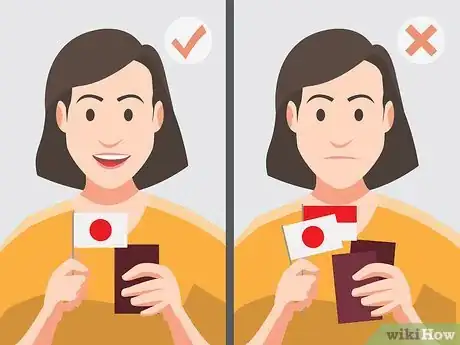








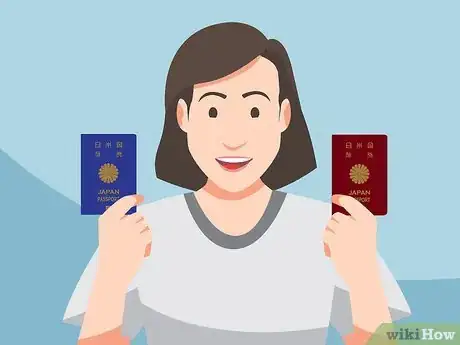



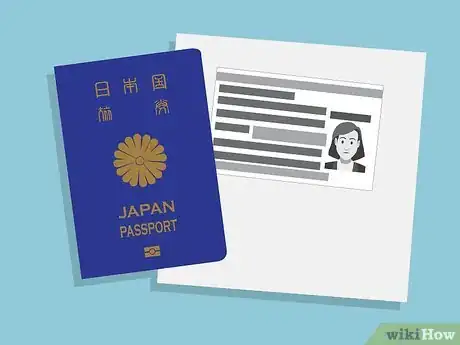


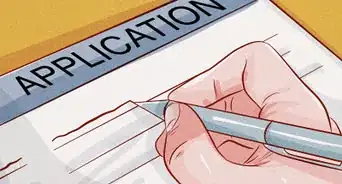





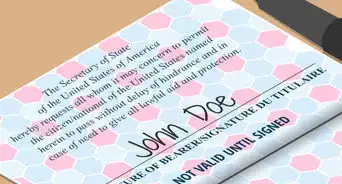













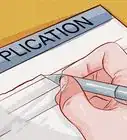
-Step-17-Version-2.webp)




































